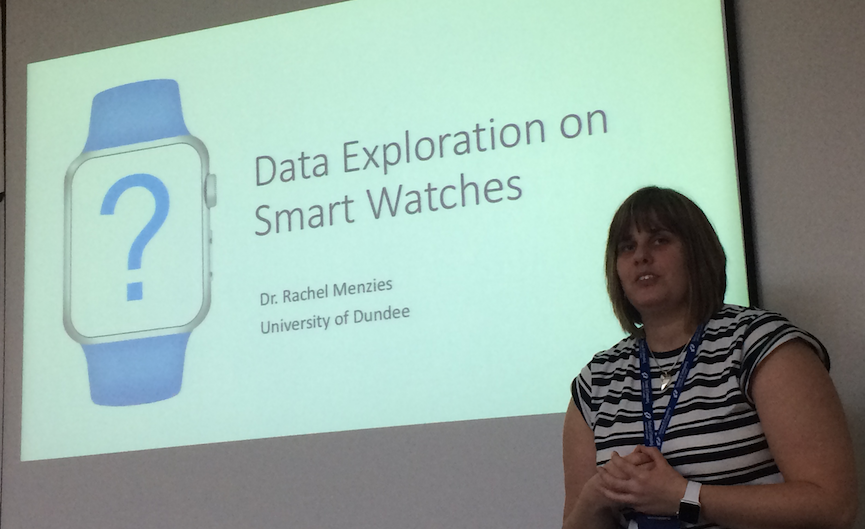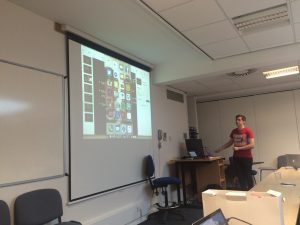<!–Speaker: Miranda Anderson, Bea Alex, Claire Grover, Uta Hinrichs and David Harris-Birtill
Date/Time: 2-3pm October 13, 2015
Location: CS1.33a, University of St Andrews–>
Abstract:
Today, many web services personalize their content, including Netflix (movie recommendations), Amazon (product suggestions), and Yelp (business reviews). In many cases, personalization provides advantages for users: for example, when a user searches for an ambiguous query such as “router,” Amazon may be able to suggest the woodworking tool instead of the networking device. However, personalization is rarely transparent (or even labeled), and has the potential be used to the user’s disadvantage. For example, on e-commerce sites, personalization could be used to manipulate the set of products shown (price steering) or by customizing the prices of products (price discrimination). Unfortunately, today, we lack the tools and techniques necessary to be able to detect when personalization is occurring, as well as what inputs are used to perform personalization.
In this talk, I discuss my group’s recent work that aims to address this problem. First, we develop a methodology for accurately measuring when web services are personalizing their content. While conceptually simple, there are numerous details that our methodology must handle in order to accurately attribute differences in results to personalization (as opposed to other sources of noise). Second, we apply this methodology to two domains: Web search services (e.g., Google, Bing) and e-commerce sites (e.g., BestBuy.com, Expedia). We find evidence of personalization for real users on both Google search and nine of the popular e-commerce sites. Third, using fake accounts, we investigate the effect of user attributes and behaviors on personalization; we find that the choice of browser, logging in, and a user’s previously content can significantly affect the results presented.
Bio:
Alan Mislove is an Associate Professor at the College of Computer and Information Science at Northeastern University. He received his Ph.D. from Rice University in 2009. Prof. Mislove’s research concerns distributed systems and networks, with a focus on using social networks to enhance the security, privacy, and efficiency of newly emerging systems. He is a recipient of an NSF CAREER Award (2011), and his work has been covered by the Wall Street Journal, the New York Times, and the CBS Evening News.
This seminar is part of our ongoing series from researchers in HCI. See here for our current schedule.




 For many of us, interacting with data on mobile devices such as phones and tablets is commonplace in our lives, e.g. phone call data, TV guide, maps, fitness and wearable data. With the introduction of smart watches, the screen size of mobile devices has dramatically decreased. This reduction in screen real estate provides challenges for the design of interfaces, including the presentation and exploration of data visualisations. Using bar charts as an example, this presentation will explore the shortcomings of current zooming techniques on very small screens and consider proposed guidelines for the development of simple data exploration applications. Key design features such as the need for overview and context will be considered in respect to a simple and effective data exploration task.
For many of us, interacting with data on mobile devices such as phones and tablets is commonplace in our lives, e.g. phone call data, TV guide, maps, fitness and wearable data. With the introduction of smart watches, the screen size of mobile devices has dramatically decreased. This reduction in screen real estate provides challenges for the design of interfaces, including the presentation and exploration of data visualisations. Using bar charts as an example, this presentation will explore the shortcomings of current zooming techniques on very small screens and consider proposed guidelines for the development of simple data exploration applications. Key design features such as the need for overview and context will be considered in respect to a simple and effective data exploration task.
